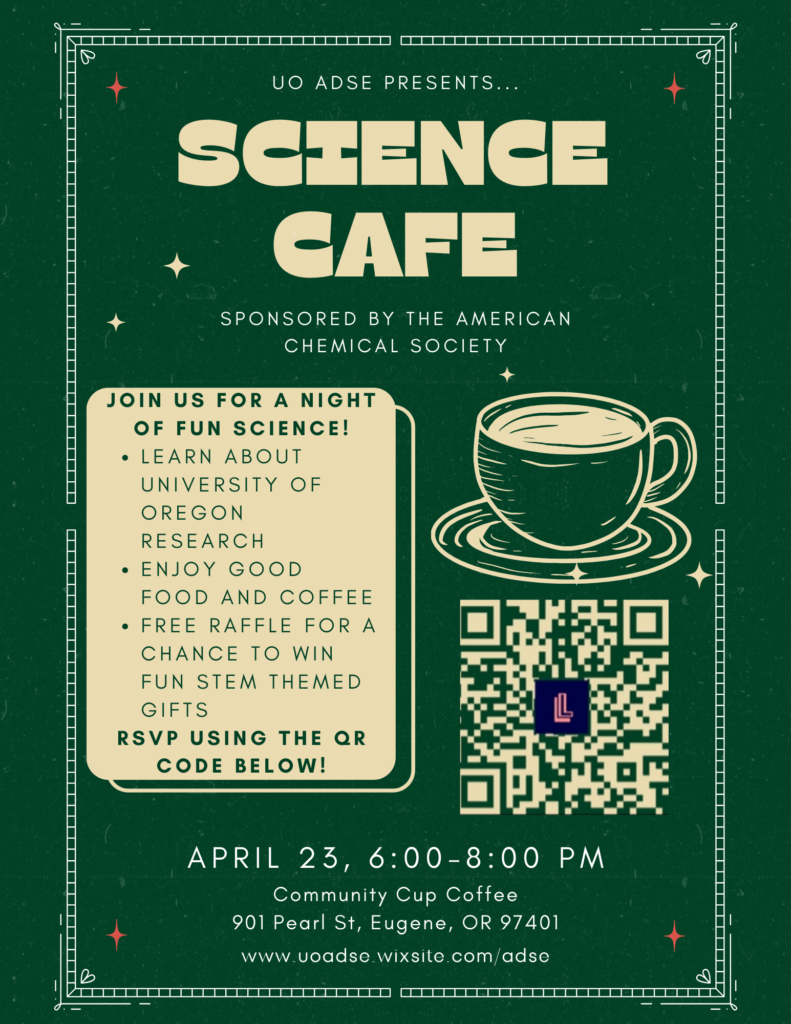Register for OSU Libraries’ free Graduate Student & Faculty Spring Term Workshops. Some workshops are offered online and some are offered in person. Registration is required. For complete session descriptions, visit the workshop calendar page. Can’t make it to a session? Some of the sessions have online tutorials or recordings.
Questions? Ask Hannah Rempel, hannah.rempel@oregonstate.edu
Intro to R (no coding experience)
Wednesday, April 2, 11:00 a.m. – 12:00 p.m. via Zoom
Intro to R (some coding experience)
Thursday, April 3, 10:00 – 11:30 a.m. via Zoom
Creating a Research Poster
Tuesday, April 8, 2:00 – 3:00 p.m. in the Autzen Classroom (Valley 2082)
Intro to GIS: QGIS Basics
Wednesday, April 9, 10:00 a.m. – 12:30 p.m., in the Autzen Classroom (Valley 2082)
Illustrator for Scientific Figures
Friday, April 11, 10:00 a.m. – 12:30 p.m., in the Autzen Classroom (Valley 2082)
Get Your Articles Quickly, Easily AND FOR FREE
Friday, April 11, 11:00 – 11:30 a.m., via Zoom
Intro to R (no coding experience)
Tuesday, April 15, 1:00 – 2:00 p.m. via Zoom
Intro to GIS: QGIS Basics
Tuesday, April 15, 2:00 – 4:30 p.m., via Zoom
Intro to R (some coding experience)
Wednesday, April 16, 12:00 – 1:30 p.m. via Zoom
Intro to Zotero: Manage Your Citations
Thursday, April 17, 10:00 – 11:00 a.m., via Zoom
Intermediate/Advanced Zotero
Thursday, April 17, 11:00 a.m. – 12:00 p.m., via Zoom
Using Qualtrics to Make Great Surveys
Monday, April 21, 1:00 p.m. – 3:30 p.m., via Zoom
Managing Your Digital Footprint
Tuesday, April 22, 12:00 – 1:00 p.m. in the Autzen Classroom (Valley 2082)
Intro to R (no coding experience)
Tuesday, April 22, 3:30 – 4:30 p.m. via Zoom
Intro to LaTeX
Tuesday, April 29, 12:00 – 1:30 p.m., via Zoom
Intro to Zotero: Manage Your Citations
Thursday, May 1, 1:00 – 2:00 p.m., in the Autzen Classroom (Valley 2082)
Intermediate/Advanced Zotero
Thursday, May 1, 2:00 – 3:00 p.m., via Zoom
Illustrator for Scientific Figures
Tuesday, May 6, 10:00 a.m. – 12:30 p.m., in the Autzen Classroom (Valley 2082)
Intro to R (some coding experience)
Tuesday, May 6, 11:00 a.m. – 12:30 p.m. via Zoom
QGIS Intermediate
Thursday, May 8, 3:00 – 5:00 p.m., via Zoom
Intro to Git-Session 1
Friday, May 9, 11:00 a.m. – 1:00 p.m., via Zoom
Using Qualtrics to Make Great Surveys
Tuesday, May 13, 10:00 a.m. – 12:30 p.m., Nishihara Family Classroom (Valley 2024)
Intro to Git – Session 2
Tuesday, May 13, 1:00 – 3:00 p.m., via Zoom
Basic EndNote
Friday, May 16, 10:00 – 11:00 a.m. via Zoom
Intermediate/Advanced EndNote
Friday, May 16, 11:00 a.m. – 12:00 p.m. via Zoom
